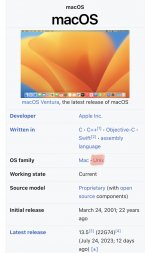Linux overtakes MacOS as the 2nd most used OS for gaming thanks to the Steam Deck
While Windows has historically maintained most of the gaming market for PC, other operating systems have also hold a share in it, even if low, like Linux and macOS, which next to Windows, have also their own gaming market. For decades, Windows held the first place, with a percentage of around 95+%, followed closely by macOS and then Linux following with percentages barely breaking above the 1%.
However, due to the popularity of the recently released Steam Deck just a year ago, alongside Valve's own SteamOS, the percentage share for Linux gamers has seen a historical rise in usage, taking the 2nd place with 1.96%, which was held previously by macOS with 1.84%. That 1.96% isn't specific to a particular distribution of Linux, since Linux also ranges from a wide variety of them, with the following braekdown based on Linux distributions for gaming:
|
Without a doubt, a huge number of the chart is taken up by SteamOS users, and while SteamOS is the operating system that comes bundled with the Steam Deck, it can also be installed in PCs, though it's unknown just how much of that 42% is taken up by actual Deck users, and how many by PCs with SteamOS users, but it might be safe to say that the majority of that portion from the chart could very well be Steam Deck players.






